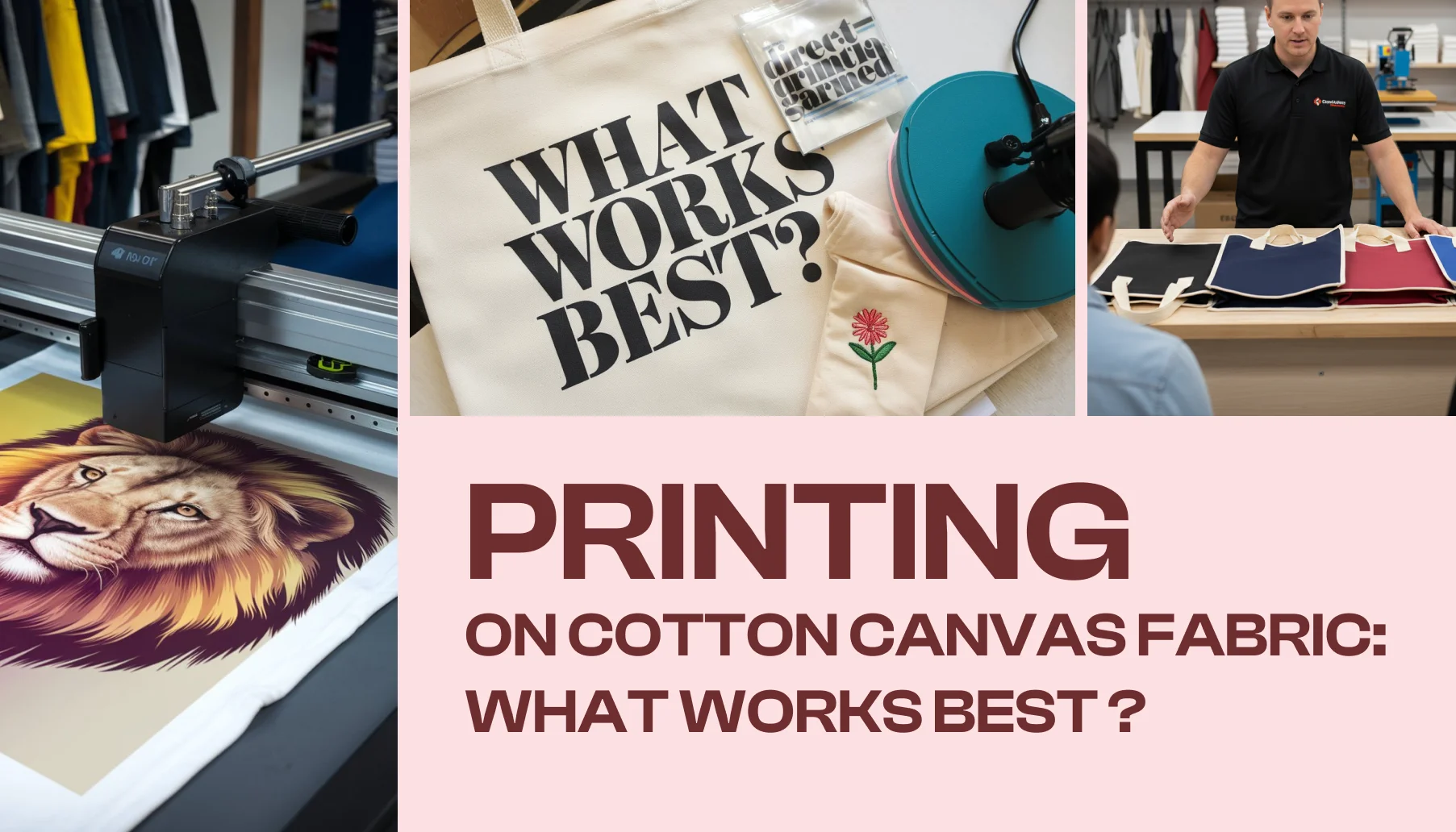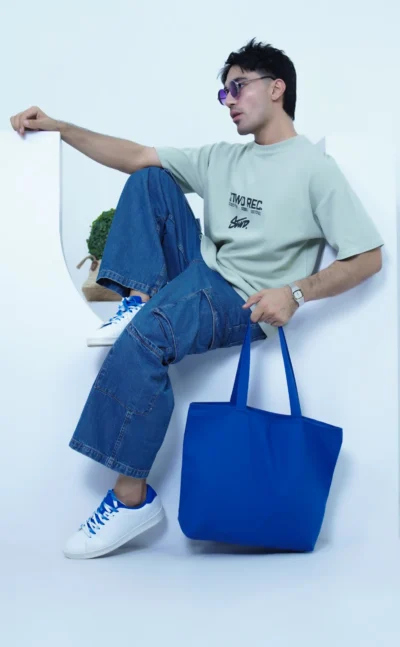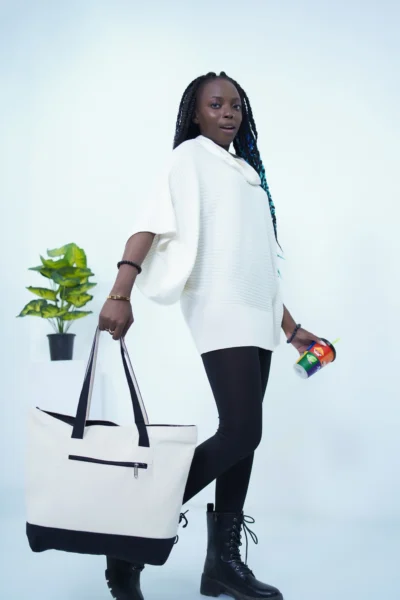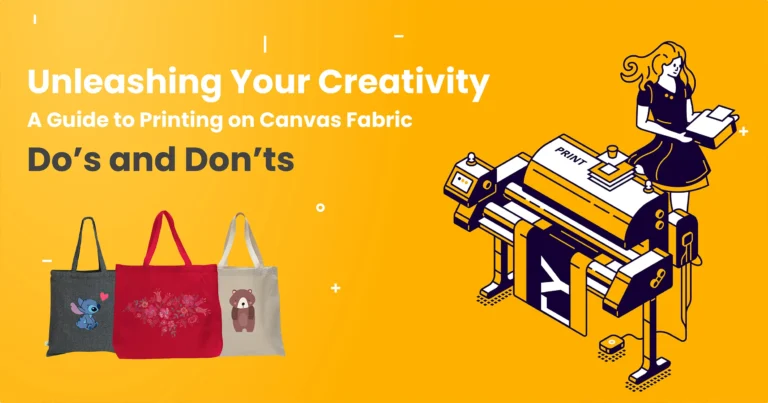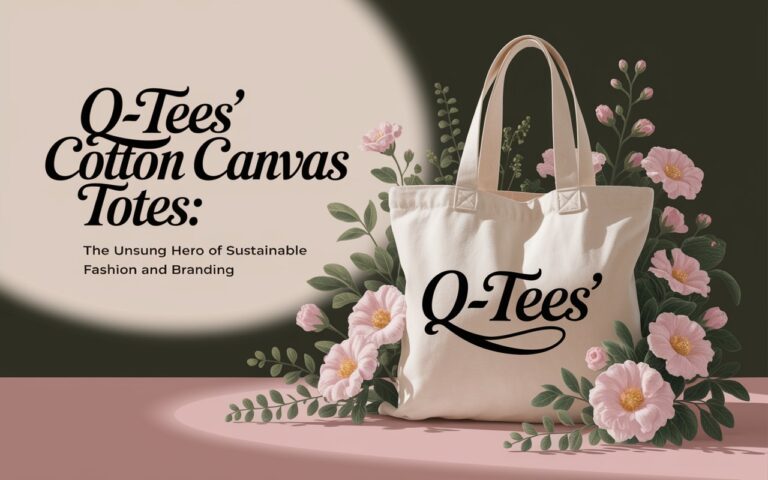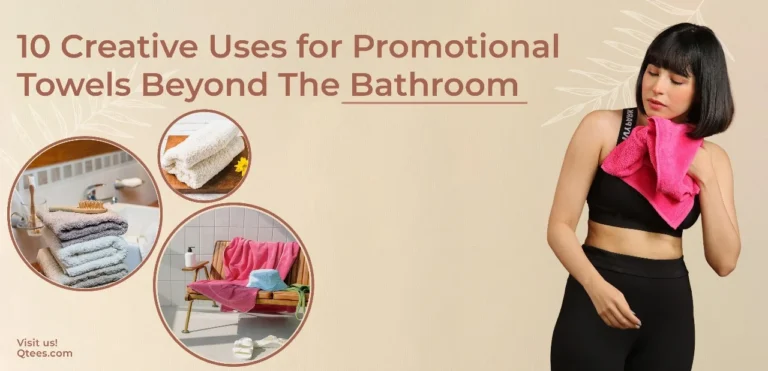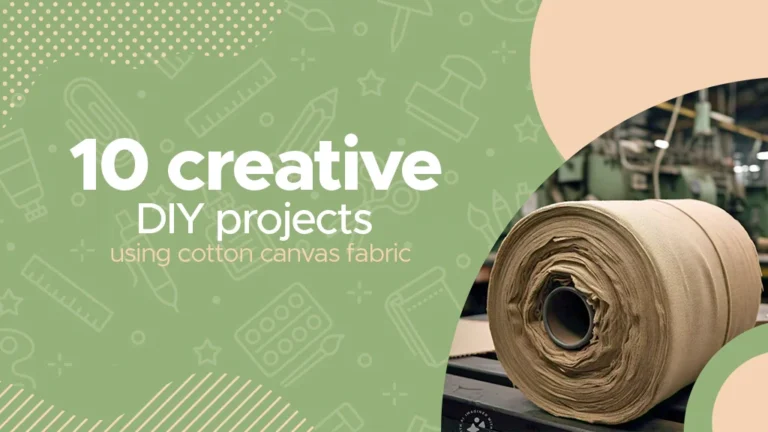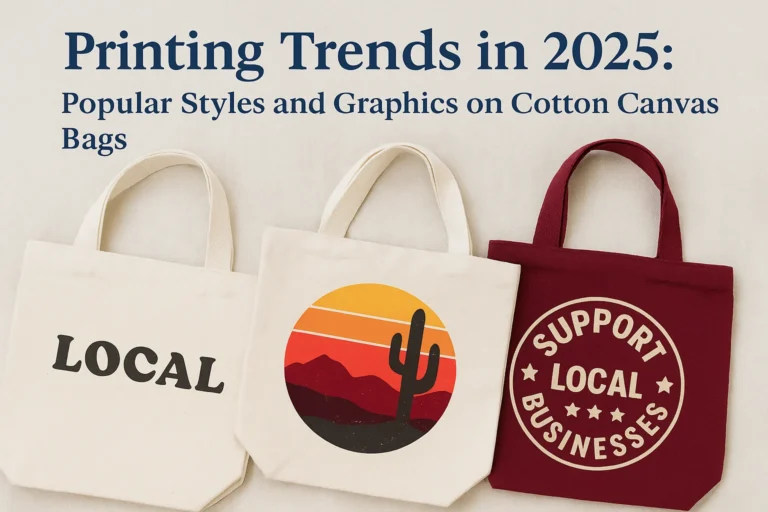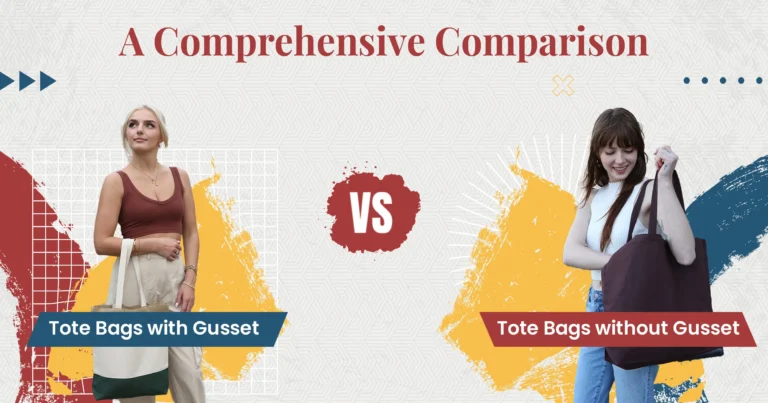Printing on Cotton Canvas: What Works Best?
Cotton canvas has become a go-to fabric for tote bags, backpacks,…
Cotton canvas has become a go-to fabric for tote bags, backpacks, aprons, and all kinds of promotional and retail products. Its durability, eco-friendly appeal, and versatile look make it the perfect base for custom designs. But when it comes to printing on cotton canvas, not all methods deliver the same results.
If you’ve ever wondered which printing technique works best — whether you’re creating custom retail bags, promotional giveaways, or even art prints this guide breaks down the four most popular methods: screen printing, direct-to-garment (DTG), embroidery, and heat press.
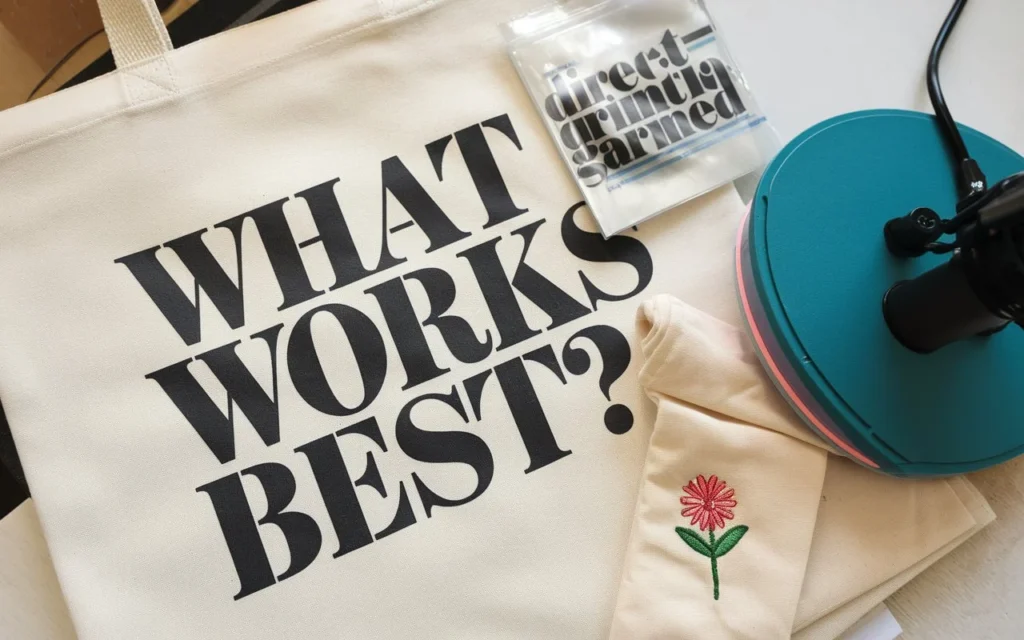
1. Screen Printing on Canvas
Best for: Bold logos, simple designs, large orders
Screen printing is one of the oldest and most reliable methods for printing on cotton canvas. It involves pressing ink through a mesh stencil, layer by layer, onto the fabric.
✅ Why it works well:
- Canvas absorbs ink beautifully, creating a vibrant, long-lasting finish.
- Works great for bold logos, slogans, or 1–3 color designs.
- Cost-effective for bulk runs.
⚠️ Considerations:
- Not ideal for highly detailed or full-color photo prints.
- Each color requires a separate screen, which can raise costs for complex artwork.
👉 If you’re producing branded tote bags for a giveaway or retail, screen printing is often the most economical and durable choice.
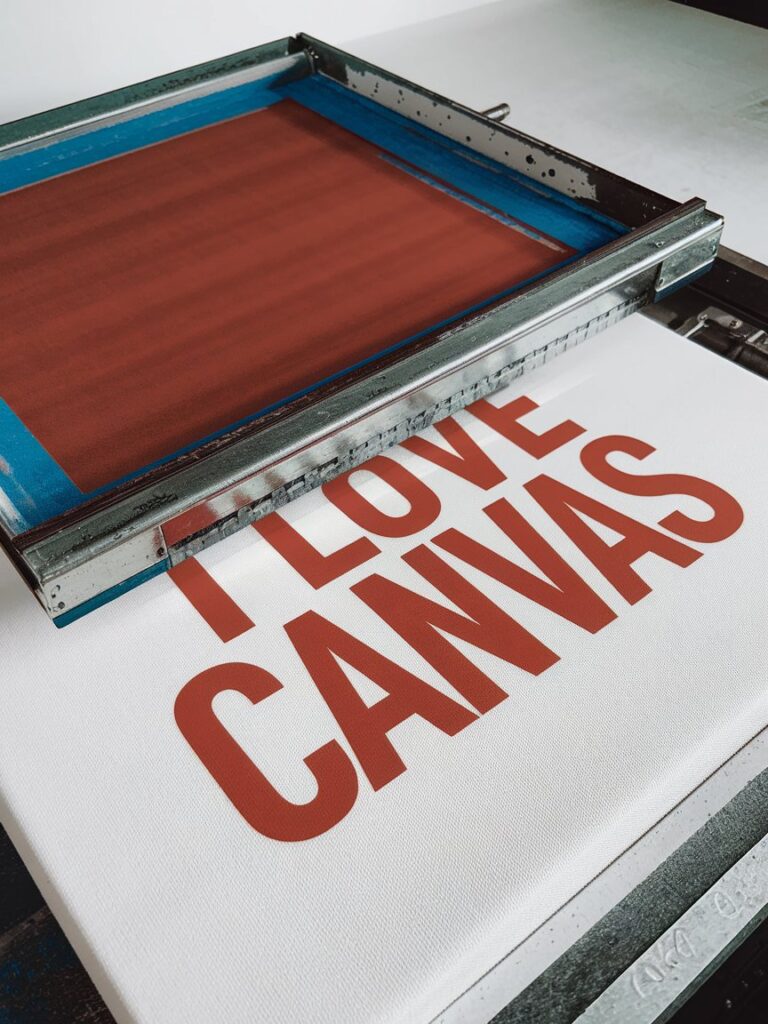
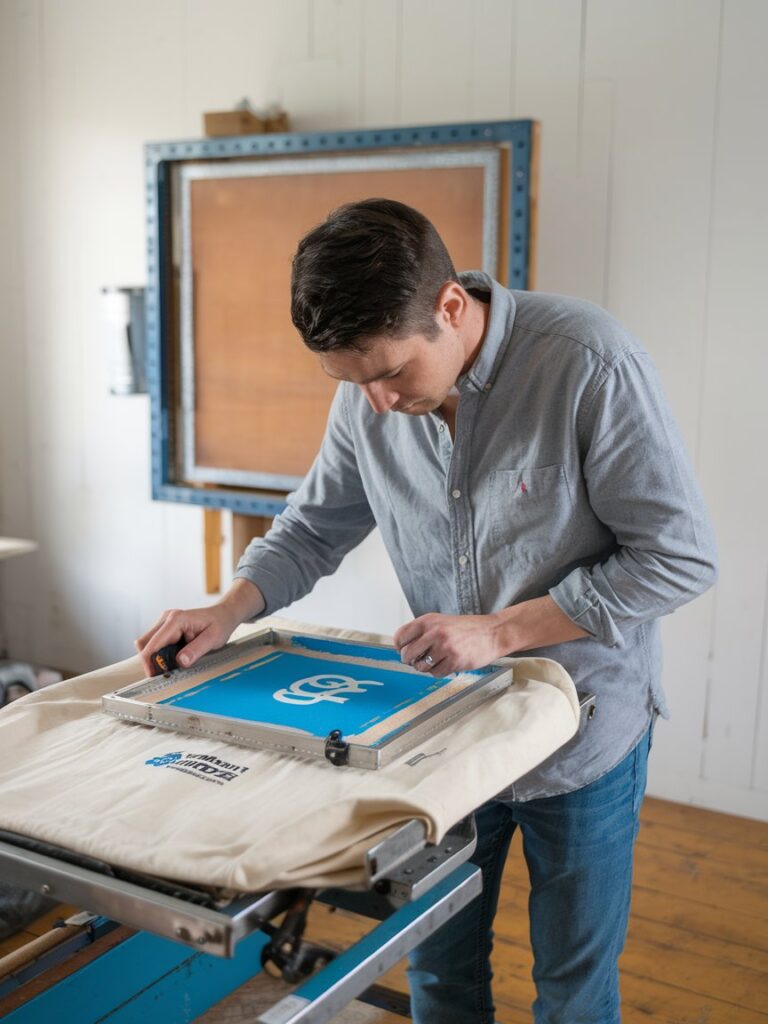
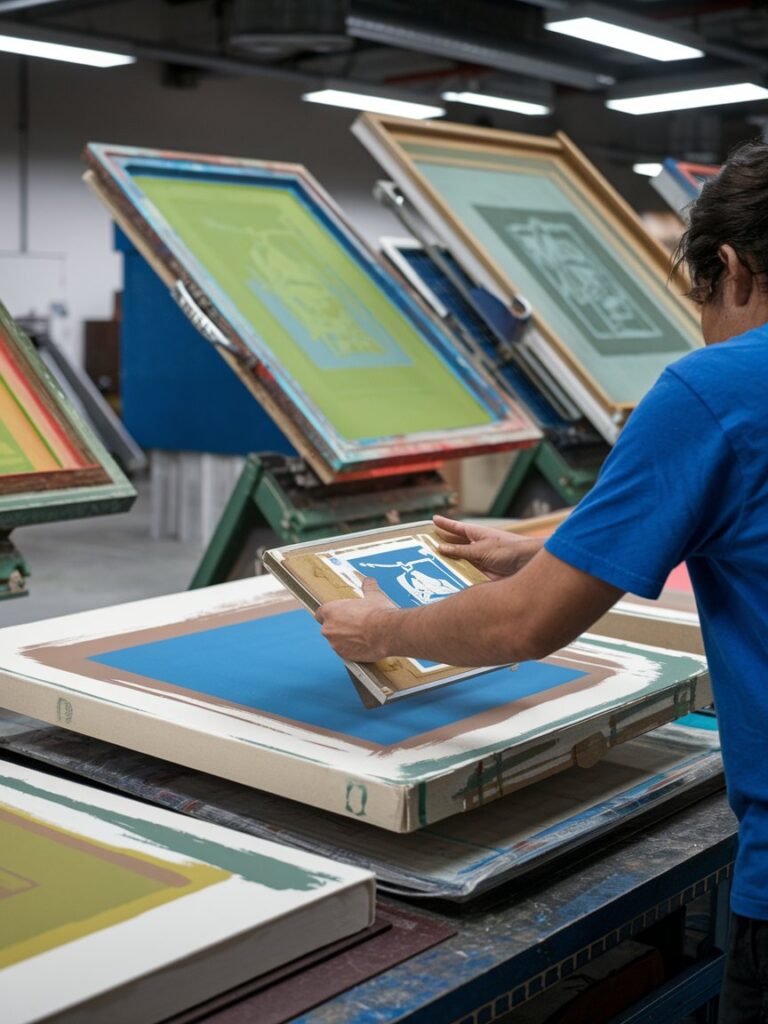
2. Direct-to-Garment (DTG) Printing
Best for: Detailed graphics, full-color prints, small runs, DTG is like using an inkjet printer — but for fabric. It sprays water-based inks directly onto the cotton canvas, capturing fine details, gradients, and full-color images.
✅ Why it works well:
- Perfect for photo-realistic designs and detailed artwork.
- Allows unlimited colors without extra setup costs.
- Works best for small-batch or custom orders.
⚠️ Considerations:
- DTG works best on smoother, tighter-weave canvas (some rough-textured fabrics may reduce print clarity).
- Less cost-effective for very large orders compared to screen printing.
👉 For art-driven designs or limited-edition canvas bags, DTG is the clear winner.
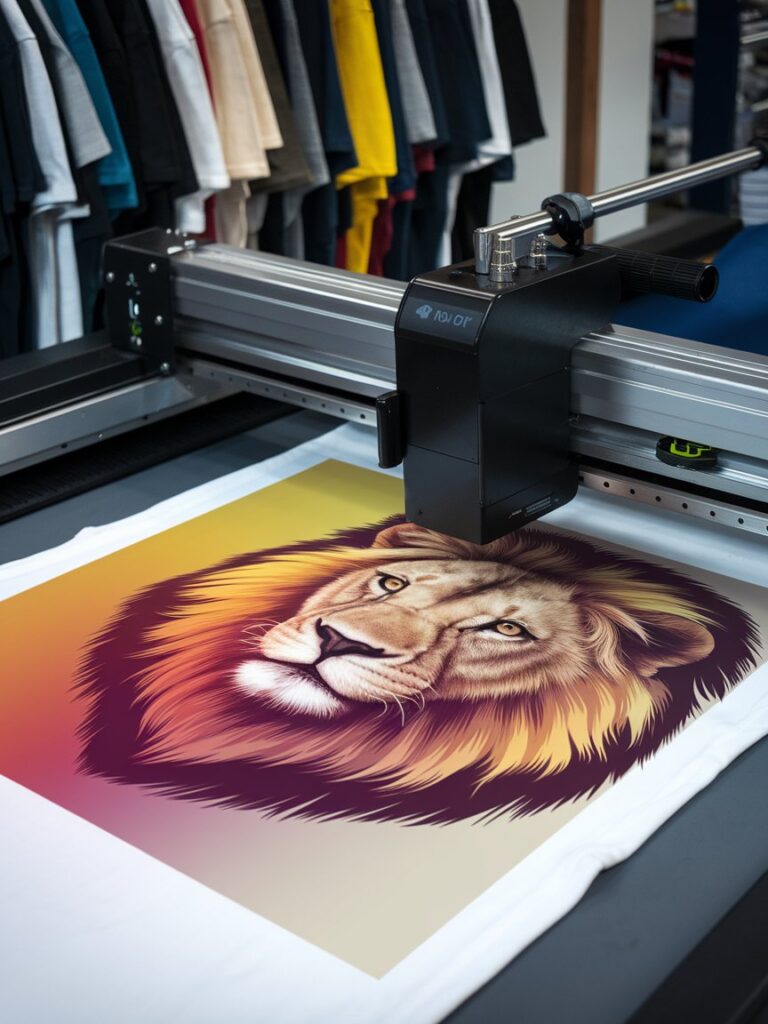
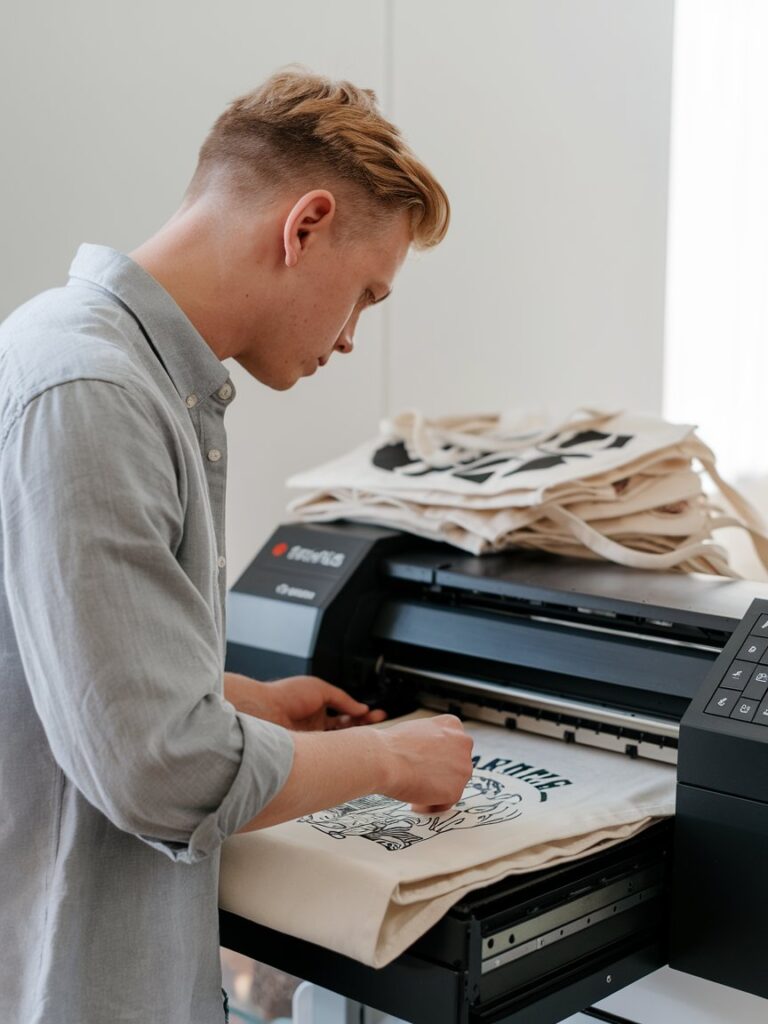
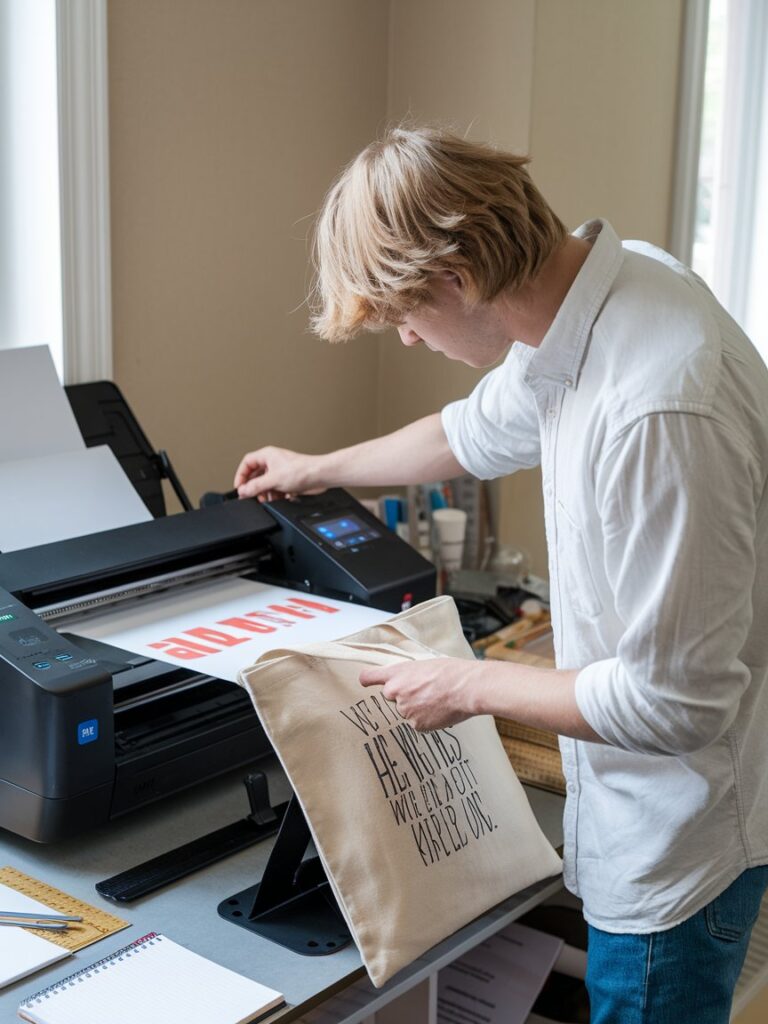
3. Embroidery on Canvas
Best for: Premium look, logos, long-lasting designs.
Embroidery is a timeless decoration method that uses thread instead of ink. On canvas bags and apparel, embroidery adds a high-end, textured look that feels durable and professional.
✅ Why it works well:
- Extremely durable — thread won’t fade like ink.
- Adds texture and a premium feel.
- Ideal for corporate logos, initials, or monograms.
⚠️ Considerations:
- Not suitable for highly detailed or intricate multicolor images.
- Can be more expensive compared to printing.
👉 If you’re aiming for premium promotional products or retail lines, embroidery helps your canvas products stand out.
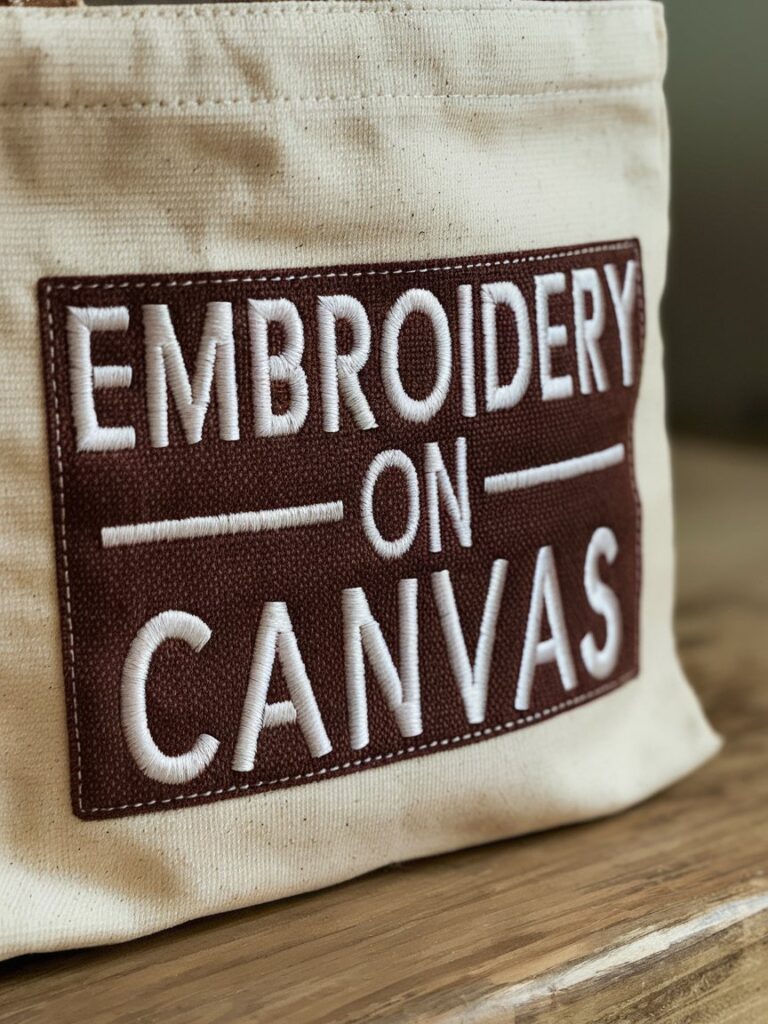
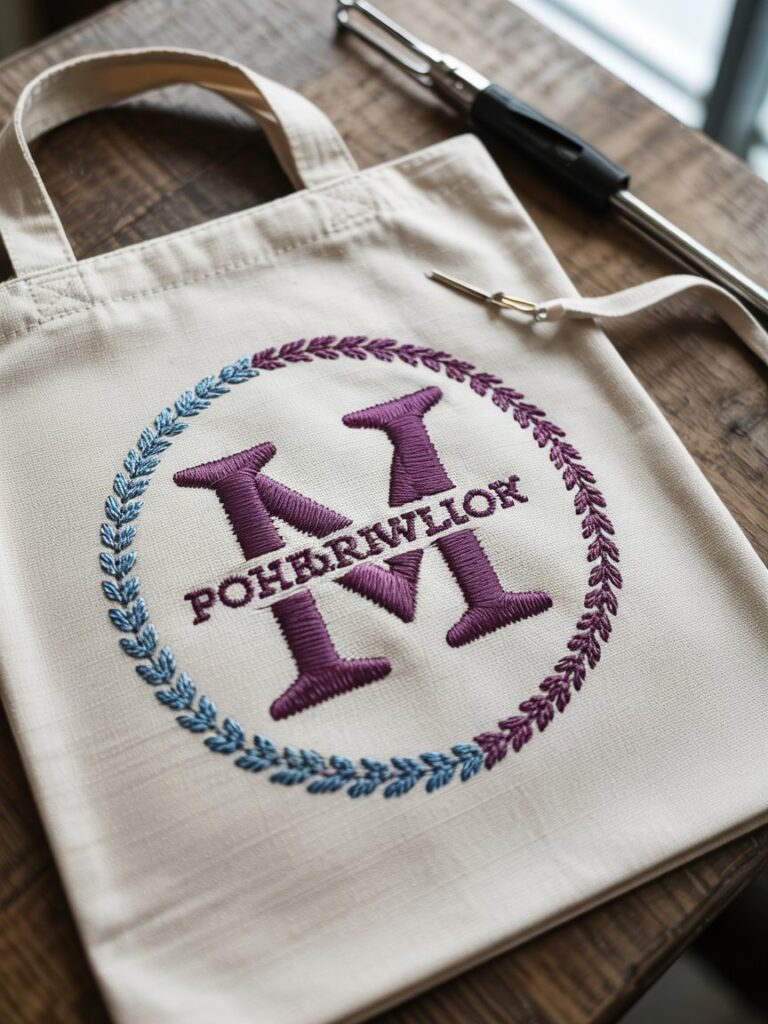
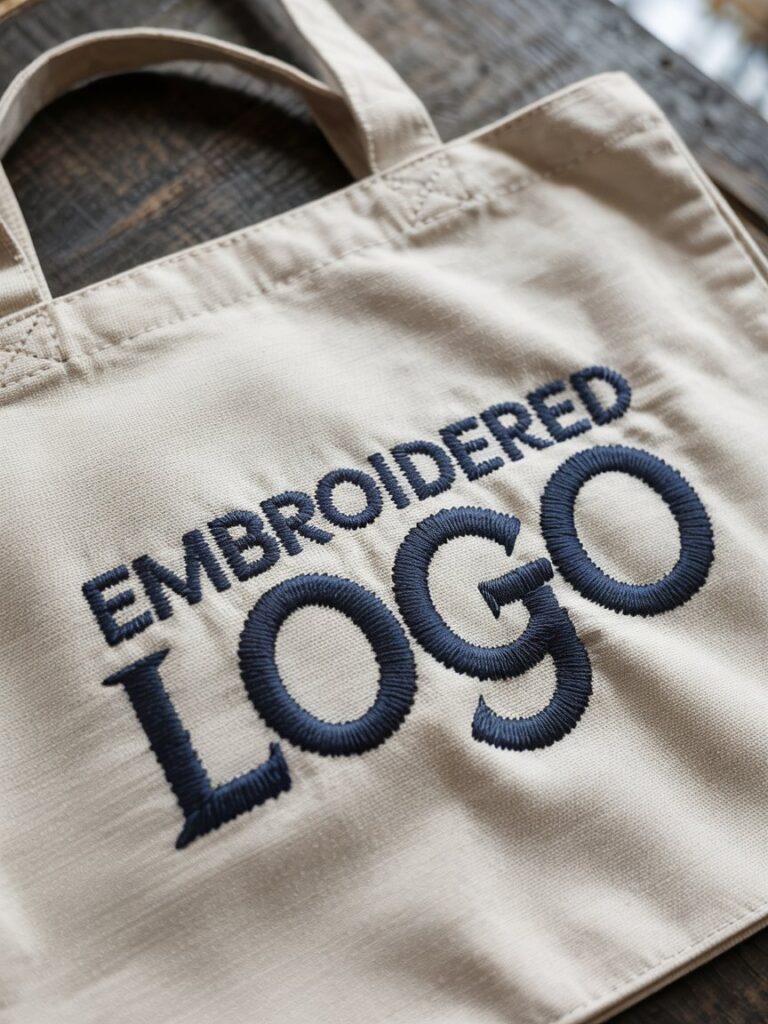
4. Heat Press (Vinyl or Transfers)
Best for: Small runs, personalization, vibrant colors.
Heat press involves transferring a design onto canvas using heat and pressure, often with vinyl or transfer paper. It’s versatile and quick to apply.
✅ Why it works well:
- Great for adding names, numbers, or personalized elements.
- Bright, solid colors pop against natural canvas.
- No screens or major setup required.
⚠️ Considerations:
- Works better on flat surfaces (not great for seams or textured areas).
- Durability can be less than screen printing or embroidery with heavy use.
👉 Heat press is perfect for short runs or personalized canvas totes for events, giveaways, or sports teams.
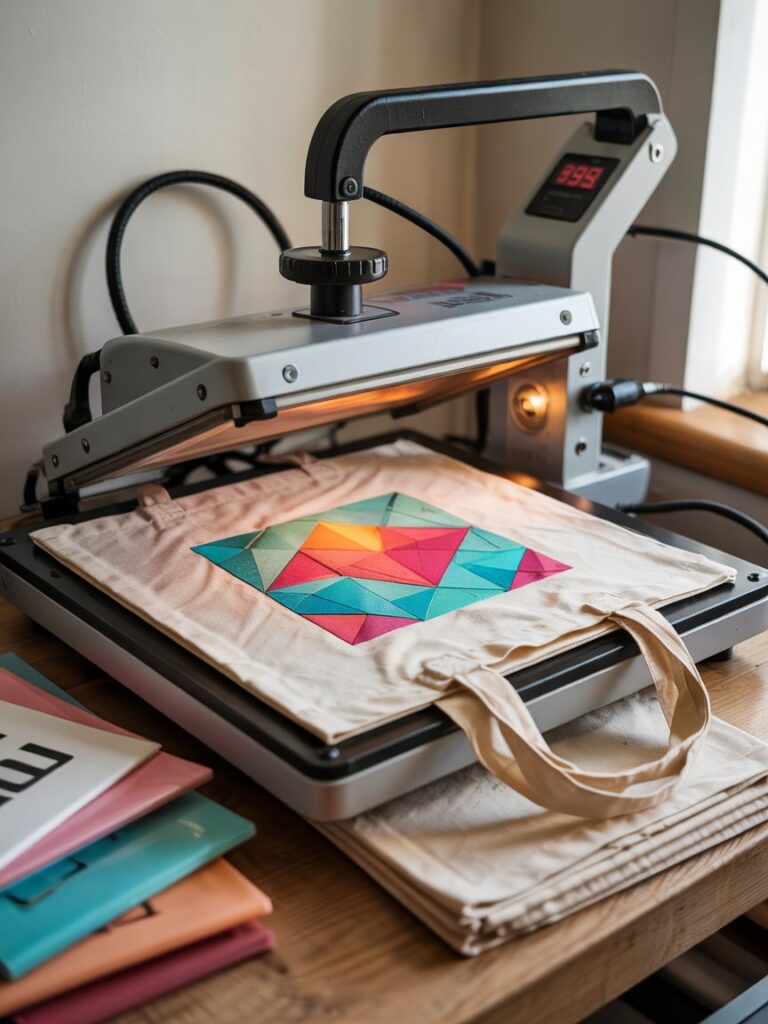
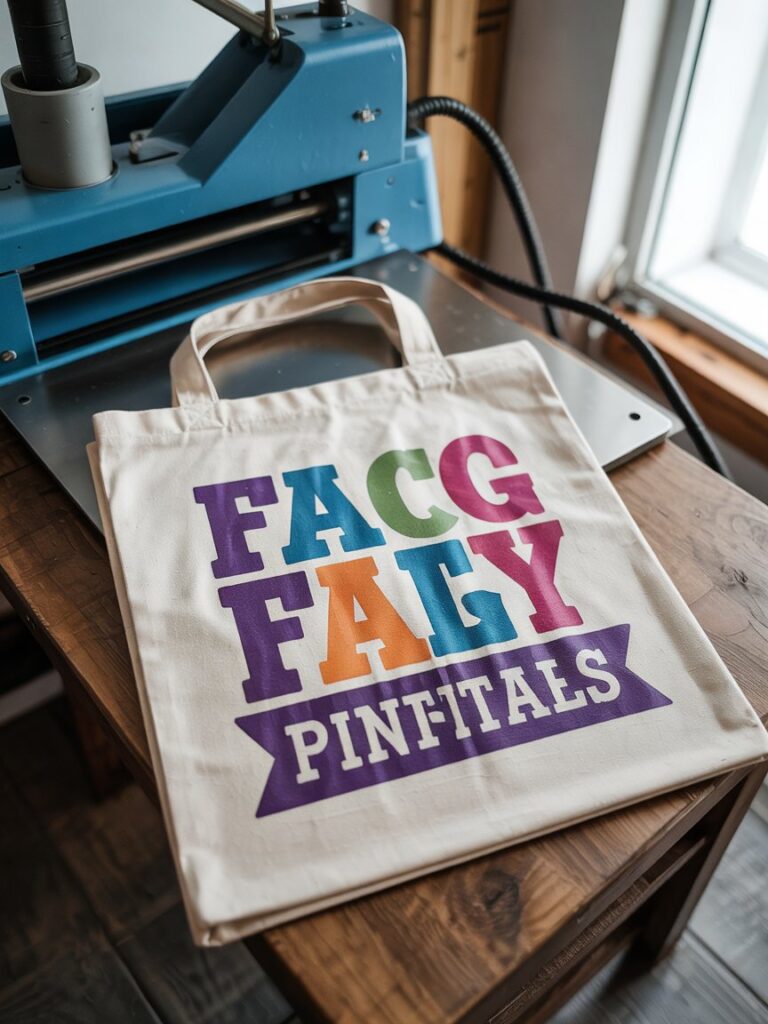
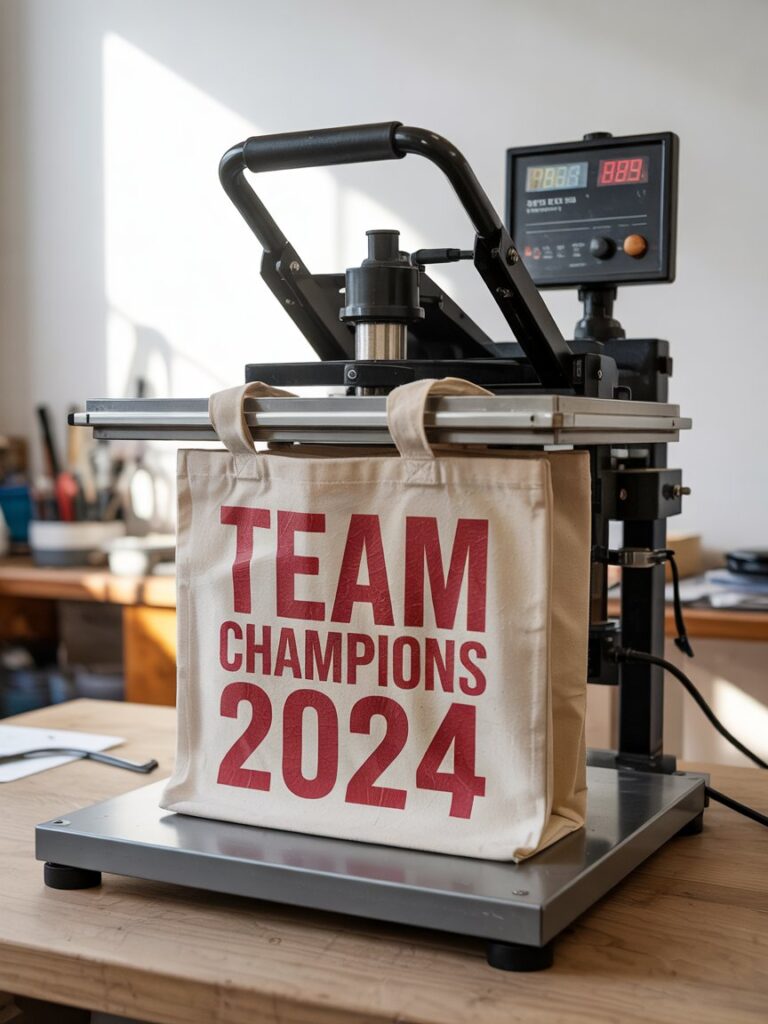
So, Which Printing Method is Best for Cotton Canvas?
It all depends on your goals:
- Screen Printing → Best for bulk orders and bold logos
- DTG Printing → Best for detailed, full-color graphics
- Embroidery → Best for a premium, durable finish
- Heat Press → Best for personalized or small runs
Cotton canvas is an incredibly versatile material that pairs well with all these methods. The key is matching the technique with your project needs — whether you’re a distributor looking for cost efficiency, a brand building premium merch, or an artist selling limited-edition bags.

